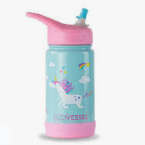Introduction: The environmental impact of plastic water bottles has led to a growing demand for biodegradable alternatives that can effectively address plastic pollution. In this blog, we’ll explore the advancements in biodegradable materials for water bottles, their potential benefits, and how these innovations contribute to a more sustainable future.
- Biodegradable Plastics: A Sustainable Solution: Biodegradable plastics offer a promising alternative to traditional plastic water bottles, as they break down naturally over time, reducing their environmental impact and minimizing plastic waste.
- Renewable Resources and Eco-Friendly Manufacturing: Many biodegradable water bottles are made from renewable resources, such as plant-based materials, reducing reliance on fossil fuels and promoting eco-friendly manufacturing processes.
- Decomposition and Soil Enrichment: Biodegradable water bottles decompose into natural elements, enriching the soil and reducing the risk of harm to wildlife and marine ecosystems.
- Reducing Plastic Pollution: Embracing biodegradable materials for water bottles can significantly contribute to reducing plastic pollution, as they have a shorter lifespan and pose less risk to the environment.
- Consumer Adoption and Awareness: Educating consumers about the benefits of biodegradable water bottles and encouraging their adoption will drive demand for eco-friendly alternatives, fostering a more sustainable consumption culture.
Conclusion: Advancements in biodegradable materials represent a significant step towards mitigating the environmental impact of plastic water bottles. By embracing these innovations, we can make strides towards a more sustainable future, reducing plastic pollution and conserving our natural resources for generations to come.

















